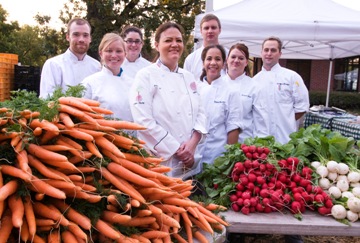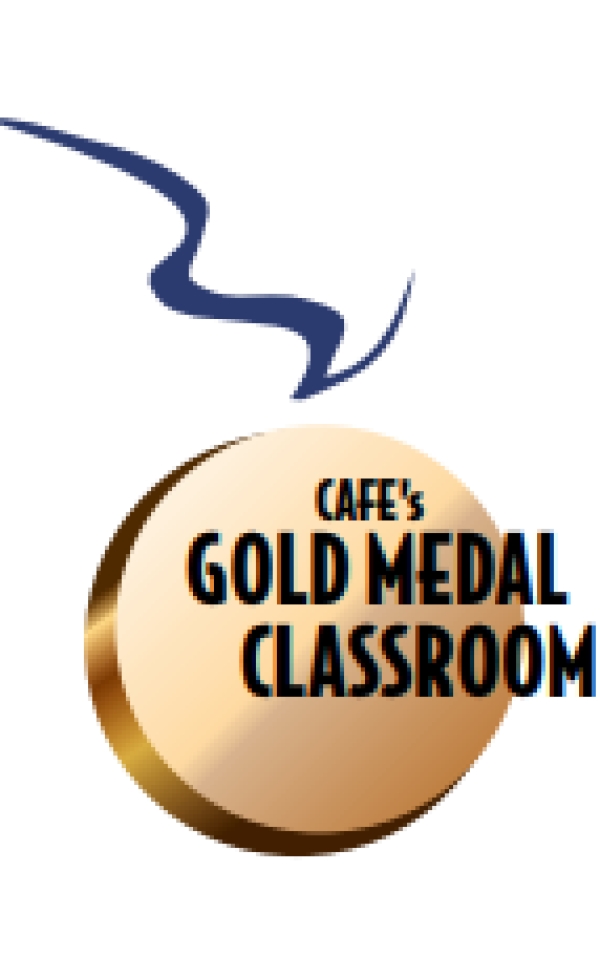Green Tomato: Sustainability—Hot on the Plate in 2010
17 December 2009By Christopher Koetke, CEC, CCE
 NRA’s latest “What’s Hot” survey lists “local” and “sustainable” as the biggest menu trends.
NRA’s latest “What’s Hot” survey lists “local” and “sustainable” as the biggest menu trends.
The National Restaurant Association’s (NRA) annual survey of more than 1,800 professional chef members of the American Culinary Federation reveals that local sourcing of ingredients and sustainability will be the hottest trends on restaurant menus in 2010. Locally grown produce, locally sourced meats and seafood, sustainability and locally produced wine and beer top the list of nearly 215 items in the “What’s Hot in 2010” survey.
Indeed, according to recent NRA research, six out of 10 consumers say they are more likely to visit a restaurant that offers food that was grown in an organic or environmentally friendly way.
“The top trends this year … reflect wider societal trends and consumers’ growing interest in these issues,” says Dawn Sweeney, president and CEO of the association. “Many restaurants are sourcing some of their ingredients locally, and you often see chefs shopping at farmer’s markets to create a host of better-for-you options that today’s diners want.”
“This is retro—it’s what we did in the past when chefs relied on local markets because we did not have the luxury of today’s transportation system,” says Michael Ty, CEC, AAC, president of ACF. “We are going back to our roots and the foundation of our craft that made it more pleasurable.”
When a food is described as “sustainable,” what does that mean? And what does “local” have to do with sustainability? Whether applied to produce, meat, seafood or alcoholic beverages, the concepts of environmentally friendly practices and local sourcing—farm-to-fork—are appealing to both restaurant operators and consumers for several reasons, including freshness, minimal transportation and supporting local communities and businesses.
The word "sustain," from the Latin sustinere (sus-, from below and tenere, to hold), to keep in existence or maintain, implies long-term support or permanence. As it pertains to agriculture, sustainable describes farming systems that are "capable of maintaining their productivity and usefulness to society indefinitely. Such systems ... must be resource-conserving, socially supportive, commercially competitive, and environmentally sound."1
"Sustainable agriculture" was addressed by Congress in the 1990 "Farm Bill.”2 Under that law, "the term sustainable agriculture means an integrated system of plant and animal production practices having a site-specific application that will, over the long term:
- satisfy human food and fiber needs;
- enhance environmental quality and the natural resource base upon which the agricultural economy depends;
- make the most efficient use of nonrenewable resources and on-farm resources and integrate, where appropriate, natural biological cycles and controls;
- sustain the economic viability of farm operations; and
- enhance the quality of life for farmers and society as a whole."
What’s the hottest restaurant concept in 2010 as revealed in the NRA’s “What’s Hot” survey? Restaurants with gardens, e.g., rooftop, back-yard, communal. (“Restaurants on farms” listed fourth-hottest). At Kendall College, we operate our own sustainable garden that grows produce for our restaurants and teaches students the basics of sustainable agriculture. Our instructors, particularly Peggy Ryan, executive chef of the Green Restaurant Association-certified Dining Room at Kendall College, go one step further by routinely guiding students through Green City Market, Chicago’s only year-round farmers’ market promoting local, sustainable farmers, producers and chefs by connecting them to the public through educational programming and special events.
1John Ikerd, as quoted by Richard Duesterhaus in "Sustainability’s Promise," Journal of Soil and Water Conservation (Jan.-Feb. 1990) 45(1): p.4. NAL Call # 56.8 J822.
2Food, Agriculture, Conservation, and Trade Act of 1990 (FACTA), Public Law 101-624, Title XVI, Subtitle A, Section 1603 (Government Printing Office, Washington, DC, 1990) NAL Call # KF1692.A31 1990.
Christopher Koetke is dean of The Culinary School at Kendall College, Chicago, which sponsors CAFÉ’s annual Green Award for culinary-arts programs.
Additional Info
- CAFÉ Talks Podcast Lesson Plan: 1



